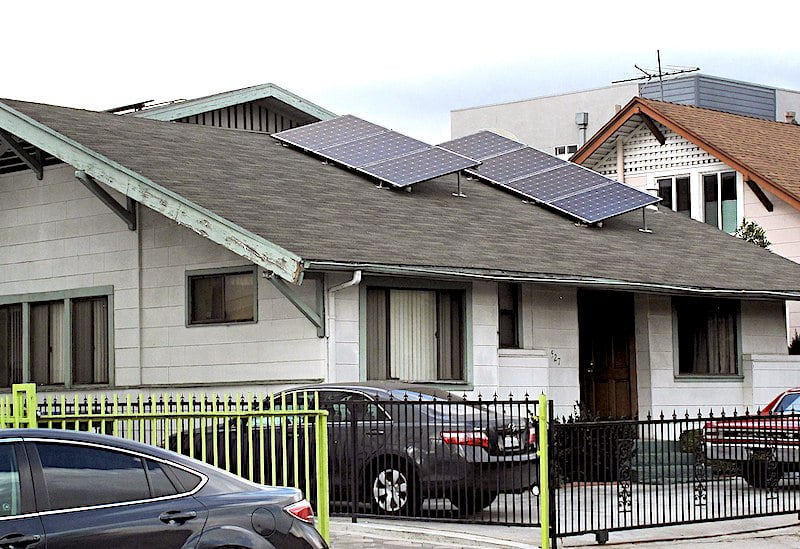Property Assessed Clean Energy (PACE)
Overview
–> Important Updates Below / Actualizaciónes Importantes más adelante <–

Many in California believed that Property Assessed Clean Energy (PACE) financing would bring California homeowners into a green-energy future through its novel use of the secured property tax assessments to pay for clean energy upgrades, but this financing product has not lived up to its promises.
Instead, Public Counsel has been overwhelmed with clients—most commonly people of color and seniors—who have had their hard-earned home equity stripped due to the poor regulation and design of this program. Because these loans are paid as part of a homeowner’s property taxes, they get “first lien” position, which means that a homeowner who cannot afford to pay the increased property taxes — either directly to the County or as part of their mortgage payment — will face foreclosure.
In addition to filing two class actions against the County of Los Angeles and its private financing administrators, our Consumer Impact team provides counsel and advice and, in some cases, limited representation to PACE victims. To date in 2021 we have cleared more than $1.5 million in fraudulent PACE lien debt for our clients.
Important Updates / Actualizaciónes Importantes
UPDATE: September 3, 2024 — On August 30, 2024, Class Counsel filed the Motion for Final Approval of Class Action Settlement and Awarding Attorneys’ Fees and Costs. You can find the Motion on the Case Developments and Key Developments section of our litigation webpage. As explained in the Motion, the Settlement Administrator received 5,623 timely claims and has determined that approximately 3,538 claims are valid. The Settlement Administrator has mailed postcards to the claimants whose claims were denied.
The Court is scheduled to hold a hearing on the Motion on September 24, 2024, at 9:00 a.m. At or after the hearing, the Court may grant final approval of the settlement or order Class Counsel to provide additional information or evidence before granting final approval. Assuming the Court grants final approval, the Settlement Administrator will begin issuing payments to, and on behalf of, the Class Members who submitted valid claims. Under the terms of the settlement agreement, the Settlement Administrator will pay Class Members in Level One directly. For Class Members in Levels Two, Three, and Four, the Settlement Administrator will make payment on behalf of the Class Member towards the Class Member’s existing PACE assessment(s), up to the amount of any existing PACE assessment, before remitting the remainder of any settlement amount for that Class Member directly to that Class Member.
We currently estimate that it will take at least 60 days after the Court’s final order before the Claims Administrator can begin to process payments.
UPDATE: March 26, 2024 – We have settled our PACE class action lawsuit, and the court granted preliminary approval of the settlement. Los Angeles County and Renew Financial Holdings have agreed to a $12 million settlement to pay homeowners for unaffordable PACE property liens. Under the settlement, anyone who entered into a Renew Financial (operating the CalFirst program) or Renovate America (operating the HERO program) in Los Angeles County between March 1, 2015, and March 31, 2018, qualifies if a lien was recorded against their property. For more info about the settlement, click here.
—
Si recibió una carta indicando que es elegible para participar en El Programa de Rescate Hipotecario de California y tiene preguntas o necesita asistencia con su solicitud, por favor mándenos un E-mail a FPC@publiccounsel.org o llame al 213-385-2977, ext. 326 y deje un mensaje.
ACTUALIZACIÓN: 26 de marzo de 2024 – Hemos resuelto nuestra demanda colectiva sobre PACE y el tribunal otorgó la aprobación preliminar del acuerdo. Según el acuerdo, cualquier persona que haya celebrado un Renew Financial (que opera el programa CalFirst) o Renovate America (que opera el programa HERO) en el condado de Los Ángeles entre el 1 de marzo de 2015 y el 31 de marzo de 2018, califica si se registró un gravamen contra su propiedad. Para obtener más información sobre el acuerdo, haga clic aquí.






